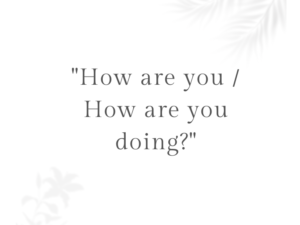
Six Of The Worst Things to say to People Who Are Grieving
So many people are experiencing grief these days. It is therefore likely that sooner or later, the time will come when each of us will be required to show compassion and support to someone who has lost a loved one.
When we try to comfort someone, most of us struggle for words. The advice in articles on the subject has tended to be to not worry about what you say because the person who is grieving will understand that it is said out of love and care. But I often hear about “well-intended” comments that have hurt, insulted or enraged the grieving. Such remarks actually make individuals feel worse, despite the fact they are aware that people are trying to comfort them.
I have personally experienced insensitive remarks as well, so here is a list of some of the most offensive comments ( see some of the best comments to make here) along with alternative options to consder when you find yourself in a position of consoling the grieving.
"I Know How You Feel"

Although it normally stems from a place of sympathy, the statement (“I know how you feel”) frequently invalidates the bereaved person’s feelings. There are no two identical grief experiences. You can never truly understand how another person feels, even if you’ve experienced something similar. This comment offers little comfort and can make someone feel as though their special and unique bond with the deceased was insignificant and has been taken away from them.
A BETTER ALTERNATIVE: “I can only imagine how you must be feeling.
This demonstrates that you understand the griever's pain without claiming to know exactly how they feel.
It also allows them to open up and share their emotions. It is much healthier to let the person speak for
themselves about their feelings, rather than assuming you know what they are experiencing.
How Are You?
How are you has become such a cliche now, does anyone really want to hear about how miserable and upset you are? Probably not because it will make them feel very uncomfortable. This vague question usually prompts people to respond with “okay” or “fine,” and it does not allow the griever to express how they are truly feeling . Part of being compassionate is about acknowledging the depth of what someone is currently experiencing. This reassures them that they can be honest with you and grieve openly without judgement.

A BETTER ALTERNATIVE: “I know things are really difficult and painful for you right now”
Consider how tough and painful life is for them right now right now.
Allow them the opportunit to fully express their grief and emotions without interruption or judgement.
"At Least You Can Still ..."

Ouch! I recieved this comment shortly after my loss! No doubt the person meant well but it was like a dagger in my heart . It felt as though he was supposed to be easily replaced – like getting a pair of new shoes. It felt as though I could just forget him and move on. To those who loved them, each person is unique, and a new spouse or child can never take the place of the one who has passed away
A BETTER ALTERNATIVE: “Share a special memory of your loved one with me”
When you say things like "You can always have another child.....remarry.... or get another pet etc,
this lesens the value of the deceased in their eyes. It can cause them to feel that one day they
will forget their loved one and the significance they had in their life.
It is a blessing when you can help someone remember a special person they lost. Reflecting on
memories can be comforting when grief is raw and intense. Furthermore it can help keep their
loved on close to their heart and mind.
"I Thought You'd Be Over This By Now"
People often say this because they want the person to be over it so they will feel more comfortable. Grief is a very personal journey for every person, and how we handle and deal with it is influenced by our own life experiences. Grief has no time limit, and it may take some people longer to progress through the stages of mourning. Putting a time limit on grief is insensitive and does little to help people learn to live with their loss. Allow the person the time and space to feel however he or she wishes—even if it is some time since the loved one’s death

A BETTER ALTERNATIVE:
“Give yourself as much time as you need to gather your strength again”.
This is akin to the "are we there yet?" question on a road trip. It dumps a pile of guilt
and pressure on the person. Its an indirect way of saying you've had long enough to grieve.
Allow your friend or family member to grieve for as long as they need to and in their own unique way.
We all have the right to our own grieving process in order to move forwards in peace.
" Let Me Know What I Can Do To Help"

It can be overwhelming to receive so many offers of help. It also places the onus on the bereaved to seek assistance. Many times, the grief stricken cannot think clearly and it can feel like yet another burden to have to contact pepole and ask for help. People are more willing to accept assistance if it is specific rather than a general offer.
A BETTER ALTERNATIVE:
“I’ll take the kids to sports after school for you this week and get your groceries as well.”
Being specific in how you can help is a great way to connect and makes it easier for them
to accept help. It takes the effort off them having to ask you for help as well
"Stay Strong"
We frequently hear the advice to keep going strong from well-intentioned people. Stay strong; you can get through this. We often understand it to mean that we stay firm and keep our feelings under control. We hide our vulnerability so that we dont fall apart and crumple. However, this phrase might be better interpreted as “having the courage and strength to face what’s happening.” Enabling ourselves to experience the challenging emotions because that’s how we heal.

A BETTER ALTERNATIVE: “I can see you’re hurting. This is really hard”
When we say "stay strong" it implies that they are not permitted to cry and grieve,
or to feel and process their emotions. Instead,acknowledge their anguish.
Simple, empathetic statements such as "This must be terrible" or "I miss them too"
can validate their feelings and reassure them that it's okay to be sad.
